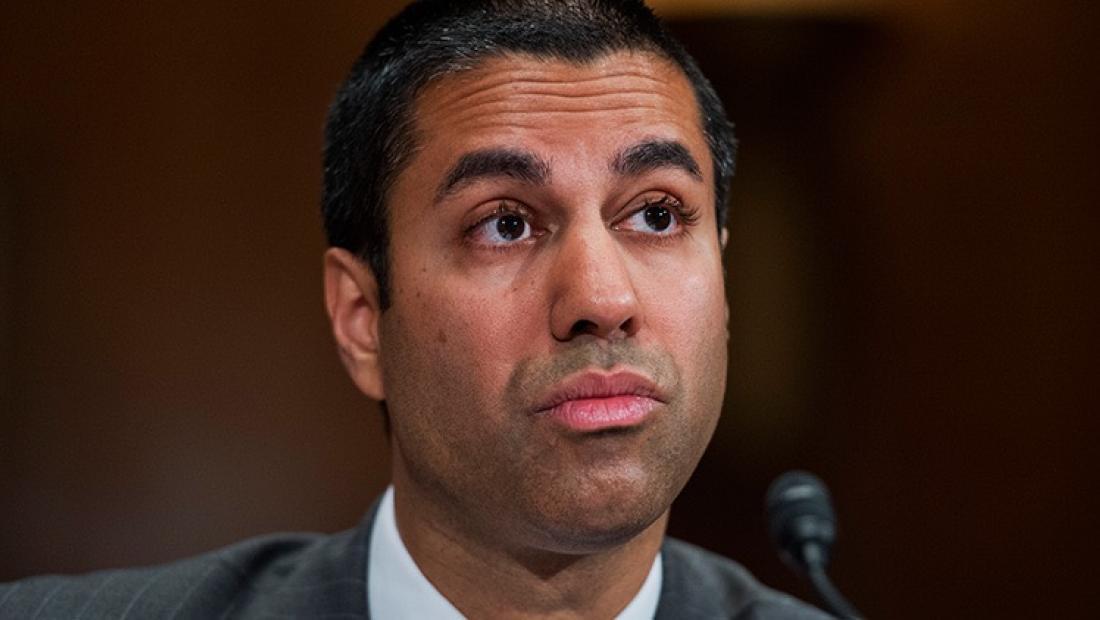Pai to Hill: Little Recourse for Bogus, Bulk, Net Neutrality Comments

The smarter way to stay on top of broadcasting and cable industry. Sign up below
You are now subscribed
Your newsletter sign-up was successful
The FCC has told Congress that there is little it can do to prevent public comments filed under false names, or under stolen identities or to prevent mass bogus filings in what is meant to be an open, public, process.
That came in FCC chairman Ajit Pai's response to congressional inquiries about the comments in the network neutrality docket.
The comment docket was flooded with comments from Russia and bot-driven input. The FCC also said it was the subject of distributed denial of service (DDOS) attacks that impeded the filing of comments and occurred not lot long after John Oliver, host of HBO's Last Week Tonight, called for a flood of pro-network neutrality comments.
In a letter this month to multiple senators, Pai explained that in order to allow for the filing of bulk comments, the FCC in 2016 was reconfigured to allow automated submissions, and that while it uses commercially available tools to protect the system from cyber attacks, " ECFS is fundamentally an open, public-facing system, which limits our ability to shut down inappropriate bots accessing [it]."
Related: House Dems Seek Net Neutrality Answers
Following "disruptions" to the systems May 7-8, 2017, which coincided with Oliver's show, the FCC did "implement solutions" limiting the "amount" of disruptive bot-related activity, Pai told Sen. Rob Portman, chairman of the Homeland Security and Governmental Affairs Committee.
As to the suggestions that many of the comments were from outside the United States--a big issue in Washington with the attempted interference of the Russian's in government processes--in that case elections--Pai said that the FCC does not have policies or procedures for determining the nationalities of commentators or whether the address of the comment is outside the U.S., save for a box to check that is optional.
The smarter way to stay on top of broadcasting and cable industry. Sign up below
Related: New York AG Investigating Fake Net Neutrality Comments
There is also no limit to the number of comments that can be filed, other than a size limit of 25 MB for each comment, and five files per submission, including attachments.
Pai pointed out that the FCC also invited bulk comments by compiling them in a .CSV file.
In a report on the filings last November, Pew Research said it had analyzed all 21.7 million-plus comments filed in the FCC's Restoring Internet Freedom docket by the comment period deadline of Aug. 30 and found that "many submissions seemed to include false or misleading personal information."
Pew said that only 6% represented "unique" comments, while 94% were multiples, in some cases hundreds of thousands of times, with thousands submitted at the exact same time. Pew labeled that "clear evidence of organized campaigns to flood the comments with repeated messages."
Net neutrality activist group Fight for the Future has accused the FCC of "sabotaging" its own comment process to sew the kind of confusion identified in the Pew report.
"They knowingly allowed malicious actors to abuse their system and submit enormous numbers of fraudulent comments using real people’s names and addresses without their permission, and they’ve refused to cooperate with investigations or transparency laws," FFTF's Evan Greer has said.
But an FCC spokesperson said of the Pew analysis at the time: "This demonstrates why a rule making proceeding is not a public opinion poll and why the FCC focuses on the quality not the quantity of the comments. For example, one third of all comments consist of a single, pro-Title II sentence: “I am in favor of strong net neutrality under Title II of the Telecommunications Act.” These 7,568,949 identical comments, however, are associated with only 50,508 unique names and street addresses. Indeed, 7,562,080 of these comments come from 45,001 “individuals” using email addresses from fakemailgenerator.com and submitting the same comment more than 90 times each."
Contributing editor John Eggerton has been an editor and/or writer on media regulation, legislation and policy for over four decades, including covering the FCC, FTC, Congress, the major media trade associations, and the federal courts. In addition to Multichannel News and Broadcasting + Cable, his work has appeared in Radio World, TV Technology, TV Fax, This Week in Consumer Electronics, Variety and the Encyclopedia Britannica.

